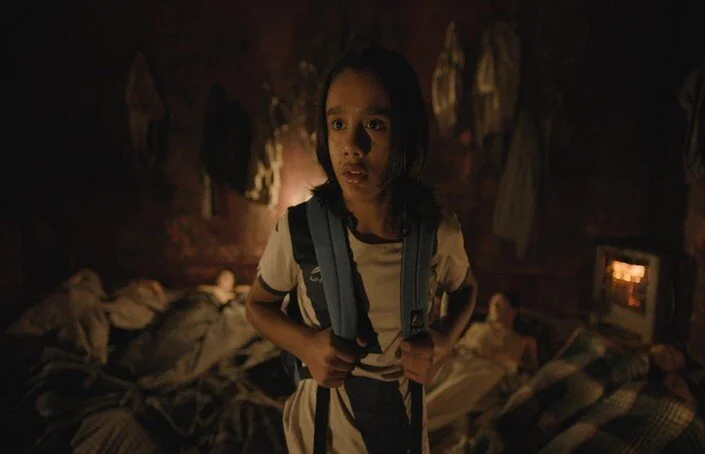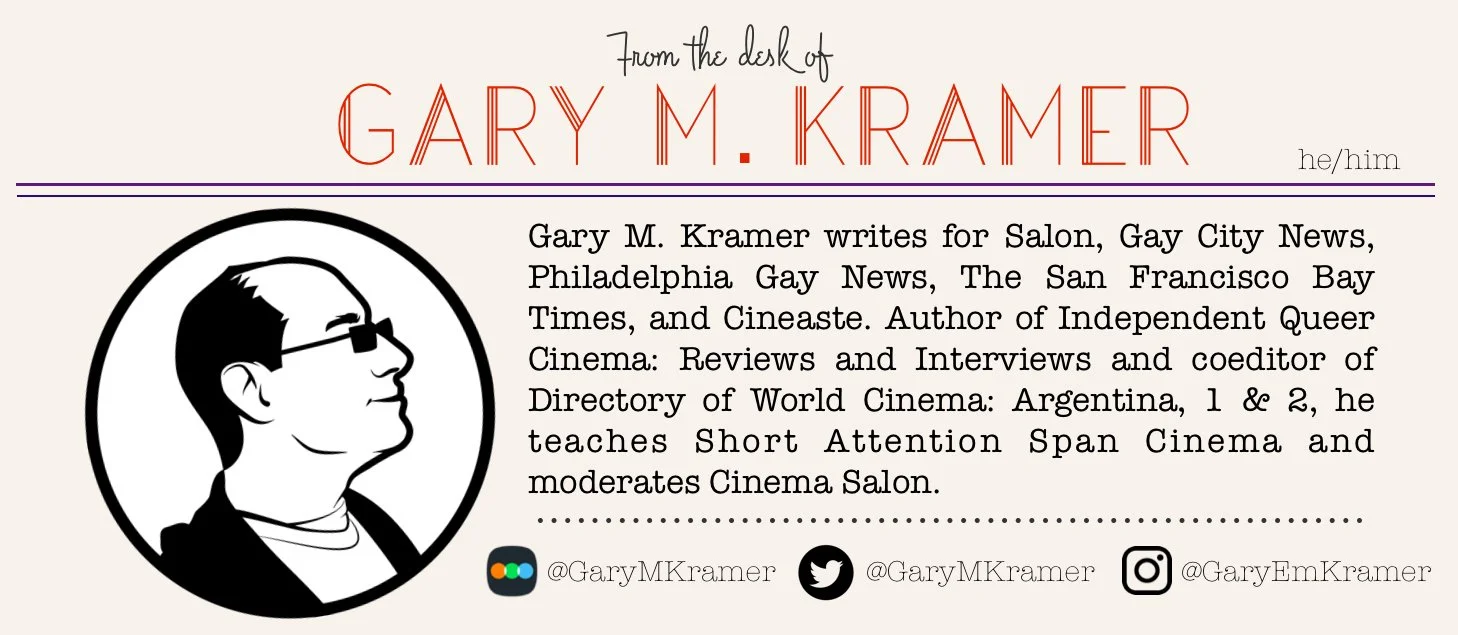CITY OF DREAMS is too preachy to be effective
City of Dreams
Written and directed by Mohit Ramchandani
Starring Ari Lopez, Jason Patric, Alfredo Castro
Rated R
Runtime: 1 hour, 36 minutes
In theaters August 30
by Gary M. Kramer, Staff Writer
Human trafficking continues to plague our society, and the ripped-from-the-headlines drama, City of Dreams, opens with the statistic that over 12 million children are victims of modern slavery.
Director Mohit Ramchandani’s earnest film is the story of “one who fought back.” Jesus (Ari Lopez) is first seen playing soccer in Mexico. He dreams of being a pro athlete and his widowed father (Jorge Antonio Guerrero) sends him off to soccer camp in the U.S. with Rodrigo (Francisco Denis).
But while crossing the border, Rodrgio drugs Jesus and enslaves him in a hidden sweatshop in Los Angeles where he sews dresses for El Jefe (Alfredo Castro). When Jesus does something wrong, he is burned on the chest with an iron. Similarly, another worker, Carlitos (Diego Calva, a long way from Babylon), is whipped and beaten when he tries to get ahead. It's a grim existence, and to the film’s credit, Ramchandani evokes the sweaty atmosphere and inhumane conditions well.
But the filmmaker also cudgel’s viewers with heavy-handed music, heightened visual effects, dream sequences, slow-motion scenes, and other flourishes that overemphasize the emotions being evoked. Yes, Jesus is going to have fantasies about being on a soccer pitch to cope with his trauma, but flashbacks to his mother’s troubled birth where Jesus is predicted to be “guided to his destiny” is too on the nose.
City of Dreams never aims for subtlety, which is its biggest failing. When Jesus roams unattended in the house he is being held in, he discovers a camera that has evidence of human rights violations. But when El Jefe tries to ferret the teen out, Jesus hides under the floor only to nearly lose his eye when El Jefe hammers down a nail. Shot in extreme closeup, with “pulse pounding” music blaring on the soundtrack, this scene tries too hard to ratchet up the tension and the impact feels diluted.
Likewise, the film is emotionally manipulative whenever two cops, Stevens (Jason Patric, slumming) and Rusanovschi (Adina Eady) have an opportunity to save Jesus from his captors. Of course, situations develop that prevent the officers from serving justice. Even an extended chase scene strains credibility as Jesus tries to escape the nefarious clutches of Nazarian (Samm Levine) who has dealings with El Jefe.
The performances are also uneven. Jesus is mute throughout most of City of Dreams, which may be a response to his series of traumas. But his lack of speech also excuses his inability to convey how horrific his experiences are to anyone who can help him. Alas, Ari Lopez’s performance should be more expressive, but he mostly comes off as a street urchin who needs a bath.
At least Alfredo Castro injects the film with some menace. His character may be broadly drawn, but El Jefe’s railing about America provides some insight into what motivates traffickers. In contrast, Diego Calva’s Carlitos, barely registers, while Francisco Denis and Andrés Delgado both chew the scenery as El Jefe’s henchman, Rodrigo and Cesar, respectively.
City of Dreams has noble intentions in depicting the horrors of human trafficking, but the messages Ramchandani wants to deliver come across as too preachy to be effective.


